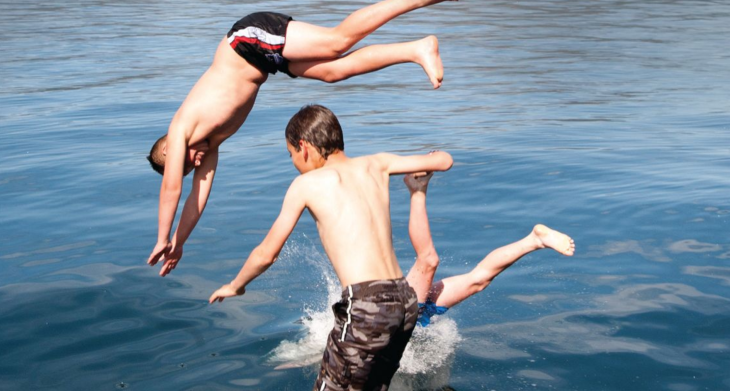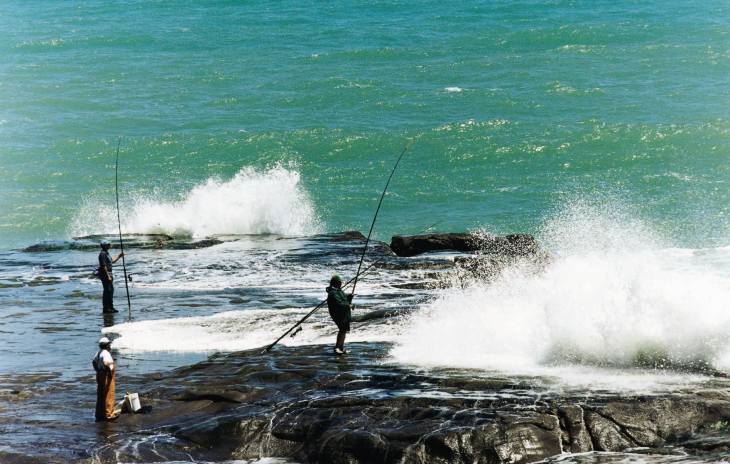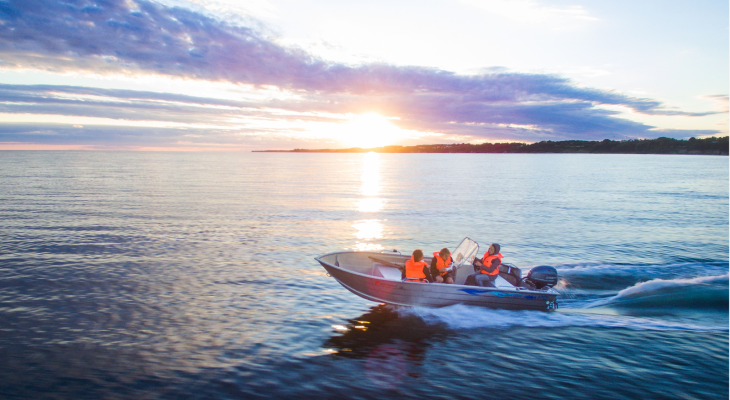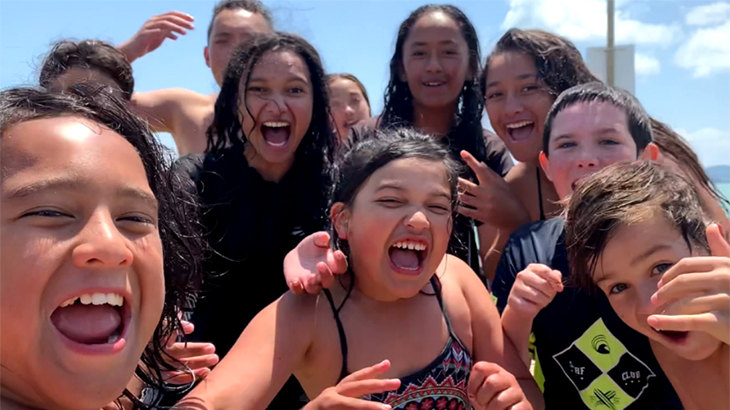Five ways we get hurt in the water and how to avoid injury
We love being in, on and around the water. But our data shows we are hurting ourselves at a record rate.
Our high rate of preventable drownings has been a talking point all around Aotearoa this summer.
So far in 2022 there have been 26 preventable drowning fatalities compared to 19 at the same time last year. A drowning is a devastating event which affects many friends and whānau.
Not only have we had seen a record number of preventable drownings, we also have an alarming rate of water-related injuries which could also be prevented.
In 2020 / 21 there were 31,635 claims for water related injuries. That’s about 87 claims a day from people out enjoying activities like surfing, fishing and swimming.
ACC spent $83 million to help people recover from these injuries. This was the highest number of injuries since 2017/18 and the highest cost for the past five years.
Water sports had the highest number with 21,700 injury claims in this period, ahead of boating injuries (10,516).
“We want all New Zealanders to enjoy what our country has to offer in summer,” says ACC Injury Prevention Programme Leader James Whitaker. “But we also want them to take a moment and think about the risks of injury.”
The five ways we are hurting ourselves in, on and around the water
Surfing
Only a surfer knows the feeling. Surfing New Zealand estimates there are 150,000 regular surfers in New Zealand. That is around one in every 30 New Zealanders getting out in the waves.
When it comes to water related injuries, surfing was the leading cause in 2020/21. In this year, there were 6,100 surfing injuries across Aotearoa. These injuries came at a cost of $11 million to help people recover.

This was the highest cost and number of injuries over the past five years.
“As surfers we have to respect the ocean," says Lee Ryan, the Development Manager at Surfing New Zealand.
"We need to acknowledge that our sport is an extreme sport and does have its dangers. It’s knowing how to minimise the risks and that comes with experience.”
James agrees.
“I’ve surfed around Aotearoa for over 30 years and I’m still humbled by some of the situations I find myself in,” he says.
James says the best way to stay safe in the surf is to take some time to ‘Have a hmmm’ before you get stuck in.
“Monitor the conditions and the risks before you get out there, then take the safest options,” he says.
“Keep an eye out for other surfers, rips and shallow sections of reef while you’re surfing too and steer clear of anything that might push your abilities too far. By doing this, you can stay injury free and keep surfing well into your later years.”
Advice from Surfing New Zealand
Swimming
Research from Water Safety New Zealand in 2021 found that 3.2 million (85 percent) adult New Zealanders visited the coast in the past 12 months.
Almost half of them (48 percent) visit the coast on a monthly basis. Over two million people are active while visiting the coast, including swimming or playing in the water.

In 2020/21 there were 6,063 swimming injury claims which came at a cost of $21.5 million. This was the highest number since 2018/ 19 and the highest cost for the past five years.
Dan Gerrard is the Water Safety New Zealand CEO. He says most people underestimate the risks and overestimating their ability.
“Most drownings and water-related injuries are preventable if we all take a moment to consider the risks," he says.
Water Safety NZ is urging people to know the Water Safety Code.
Fishing
Water Safety New Zealand research shows around a quarter of all New Zealanders get out for a fish. It’s a great feeling getting out with your friends on a boat or on the rocks and trying to reel in the big one.
The catch is it's also a leading cause for injury. In 2020/ 21 there were 4,682 fishing related injuries which came at a cost of $6m to help people recover. This was the highest number and cost for the past five years.

Water Safety New Zealand offers advice to make your fishing trip safe and enjoyable.
Water Safety NZ’s advice on how to stay safe while fishing
Swimming – Pool
Pools are often the central hub for families and friends to gather and have fun. But unfortunately pools are also dangerous places, particularly for younger children.
In 2020/ 21 there were 1,391 swimming related injuries in swimming pools around New Zealand. These injuries cost around $3.5m to help people recover.
WSNZ says adults need to ensure their children are safe. The vast majority of children who drown are alone and unsupervised, or in the care of other children at the time.

We partner with Water Safety NZ to keep children safe in, on and around water. We are the naming rights sponsor of the ACC Water Skills for Life programme.
“Knowing how to swim is not enough," says Dan Gerrard.
"ACC Water Skills for Life teaches other lifelong water safety and survival skills. While we still teach the fundamentals of swimming, we also want to address the fundamentals of being safe around the water.”
Learn more about ACC Water Skills for Life
Water skiing
It’s the definition of full freedom. Being towed behind a boat at a rate of knots.
But often it’s also a classic overestimating of ability and underestimating of risk. Boats, speed, water and people who back themselves to pull off that trick in front of their mates. It’s a recipe for injuries.
There were 1,278 water skiing related injuries in 20 / 21 and these injuries came at a cost of $3m.

'Have a Hmmm' in, on and around the water
James Whitaker is an Injury Prevention Leader at ACC. He says the hot weather across Aotearoa this summer has seen a huge number of New Zealanders enjoying the water.
“We’re huge supporters of people getting out and following their passion,” he says.
“Whether that is getting out with their mates for a surf, time with the whānau by the beach or fishing at their favourite spot on the river.
“We want people to enjoy life knowing that ACC is supporting them to stay injury-free. We are also there to get people back to everyday life when things go wrong.
“We are also laying down a wero (challenge) to all New Zealanders to ‘Have a Hmmm’.
“Think about the activity, you’re about to do. Think about the risk of injury and what you can do to prevent an injury happening in the first place.”





